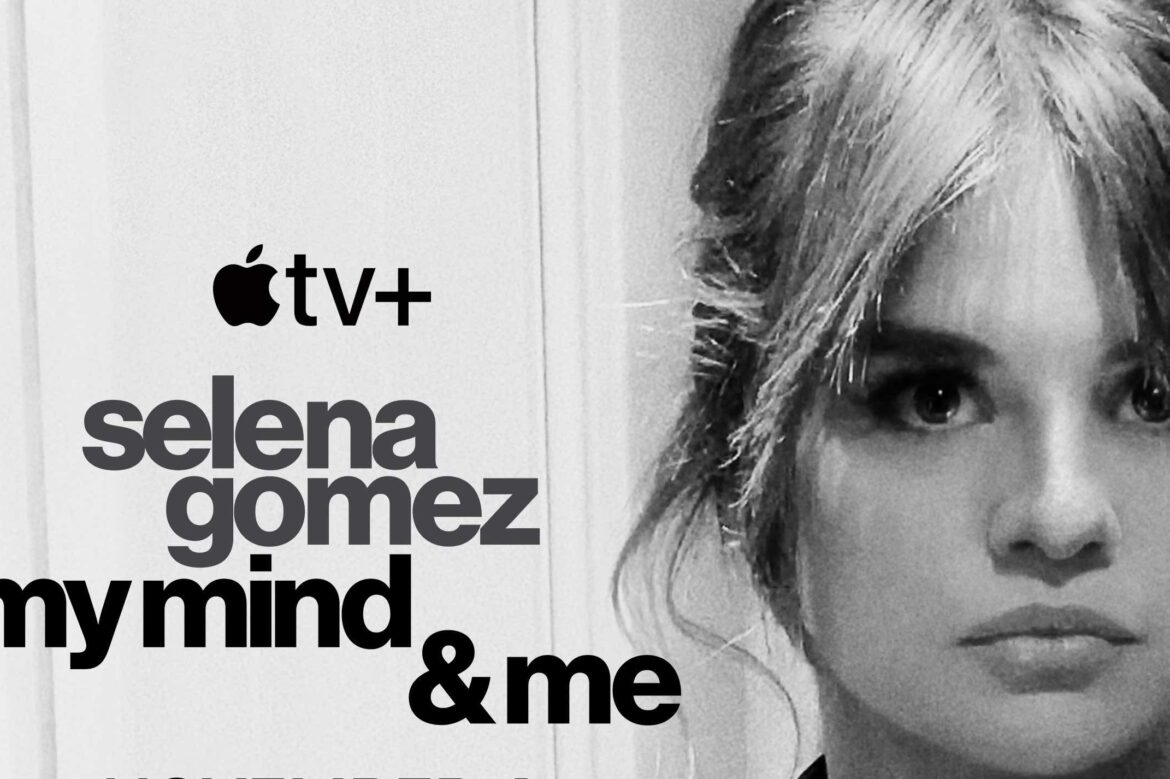
Selena Gomez: My Mind & Me – 3 crucial mental health messages
Selena Gomez shares her challenges, struggles and hopes in a new documentary exploring her experiences with anxiety, depression and bipolar disorder
Selena Gomez: My Mind & Me (Apple TV+) is a complex and beautiful documentary about a woman who has lived in the public gaze for twenty years, experiences both physical and mental ill health and who, fundamentally, wants to help others by sharing some of her most difficult experiences while still working hard to make sense of them for herself.
Spanning a period of 6 years from 2016, My Mind & Me features footage from fraught arena rehearsals, promotional tours and hard-to-watch reductive press interviews, interspersed with Selena’s own journal entries, moments of self-doubt and illness, alongside joyous meetings with friends, family and old neighbours.
My Mind & Me doesn’t sugar coat, sensationalise or shy away from the reality of Selena’s hectic life. Having been diagnosed with lupus in 2015 and subsequently undergoing a kidney transplant, she – and the people around her – have to constantly monitor her energy and pain levels to avoid further lupus flares, while simultaneously scheduling packed press trips in different continents and back to back engagements.
However, it’s her mental ill health that takes centre stage in this documentary. A crisis point for Selena, which occured in 2016, is documented through the testimony of those closest to her and afterwards by Selena herself. This episode of anxiety, depression and psychosis, they share, led to psychiatric hospitalisation and a welcome diagnosis of bipolar disorder.
The years and discoveries that follow her diagnosis, the creation of Selena’s third studio album Rare and her desire to be and do more to help others and move away from the ‘product’ she feels she could become, forms the majority of the rest of the film.
This feels like a deep dive into the nature of life with complex mental and physical health challenges as Selena questions how the past informs present day perceptions and explores the constant work it takes to live with her own mind, when it can feel like it’s working against her at times.
In sharing this, her own ever-evolving story in such a raw way, Selena will ultimately give hope, a sense of understanding and normalcy to so many people who will watch it and identify.
3 crucial mental health messages from Selena Gomez: My Mind & Me
Self-acceptance and belief is an ongoing journey and there’ll be good and bad days ahead. And that’s OK.
Selena Gomez’s song Who Says is an anthem for truly accepting and loving yourself as you are. Watching her sing ‘I wouldn’t want to be anyone else’ after crying in frustration at what she sees in the mirror, how she’ll be perceived by others and questioning her value, is in part heartbreaking but also all-too relatable.
Later, she shares her struggle with self-esteem, admitting, “the truth is, I’ve never felt good enough. Even when I’m on a stage, in front of a crowd, I’ll always find the one person who doesn’t like me and I believe them. I want to believe in myself.”
There is light to the darkness that comes with this struggle. Her bipolar disorder diagnosis gives her strength, as she begins to learn more about herself and the condition. “The moment I received that information, I had the knowledge of why I had suffered for so many years with depression and anxiety,” she explains. “I began to face it head on, as my Mother taught me to face my fears and challenges when I was younger.”
Her strength and self assuredness grows with this realisation, so when it’s suggested she might not need to publicly share her diagnosis, she makes a firm decision to do so questioning why she wouldn’t. “Because some Directors might not want to work with me? Then why would I work with them?”
Exactly Selena.
A post shared by Selena Gomez (@selenagomez)
Community and deep connection is vital for your wellbeing
Selena’s return to her hometown, school, neighbourhood and the people she grew up with (including a warm elderly neighbour, Joyce, who owns a doll’s house that Selena once coveted) offers a stark contrast to the woman we later see responding to inane questions on a press tour, where the connection is superficial and transactional, which frustrates her deeply (and rightly so).
Selena shares that connection to her childhood community, family and friends is everything to her and keeps her rooted when everything else seems chaotic and it’s precious to her. “I don’t want to ever lose that part of me,” she asserts.
It’s a beautiful reminder that there are people, not just places, that feel like home and we need to make time for those relationships, re-engaging with our inner child and powerful deep connections.
Sharing your mental ill health experience helps others feel less alone
Selena’s willingness to talk about her diagnosis and share with others has a positive impact. Opening up, in both personal and small and huge public ways, helps others to understand that it’s possible to seek help and live your life with mental ill health, rather than being defined by it.
A post shared by President Joe Biden (@potus)
There’s honesty and inspiration in Selena’s transparency and these words, shared on the documentary, could be a universal daily affirmation for anyone who has a hard time with their mental health too.
“I struggle with my thoughts and feelings at times but this does not make me faulty, this doesn’t make me weak, this doesn’t make me less than. It makes me human.”
Watch Selena Gomez: My Mind & Me on AppleTV+ from Friday 4 November
